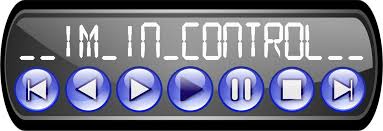I talk to people a lot about ‘flow’. This is a concept that I first came across in the landmark book ‘Flow’ by Mihaly Csikszentmihalyi. Flow is essentially the state that you can find yourself in when you are totally absorbed in something to exclusion of all other things. A mindful state if you like. You have the skills and knowledge to me master of what ever you are doing and you are engaging in it purposefully. Crucially alongside those elements in generating flow is autonomy.

Autonomy is the ability to make your own decisions and exercise control over the tasks that you have to engage in. Now, this can be difficult as in paid employment our tasks are given to us, often by a manager. So, how do we engage autonomously and create flow there.
Well, even though our tasks are often set out for us they are almost always set out as an end goal. We can often, particularly in professional practice, exercise autonomy in how we get to the end result. We can also be in control of how we break the task up and when we set time aside to do it.
In the midst of a world that often seems outside of our control if we control the bits we can control we will generate more flow. You can’t control what is given to you to do, you can’t control how people act towards you, but you can control how you respond. The more in control you feel of things in general in your life the more likely you are to respond from a place of control.

Take the tasks you have been given and control them. As David Allen, author of “Getting things done: The art of stress free productivity”, says, “if you don’t control it, it will control you.” So, take the task. Figure out the end goal and usually the end date. Then break the task down into the manageable chunks that will get you to the end goal. This method works well for tasks that have both a long and a short time frame.
Where a task has a short time frame – the “I need it by this afternoon” tasks – people tend to jump straight in in a state of panic and just start doing. You must stop and take stock and plan how to get to the end even when the end is only a few hours a way ….And still diary the tasks. Writing things down helps consolidate them. I find that it also helps you spot flaws in your strategy to get to the end point because the act of writing things down slows you down and allows your deliberate brain to take charge of your automatic brain. ‘You can’t plan and do at the same time’, as Allen also says. So plan it then simply execute your plan.
The method also works with long terms tasks for one key reason. If all you set out in your head or diary is what the end task looks like and when the end date is you are more prone to procrastination. If you set the end point and dairy in all the steps so that you can chip away at the task a step at a time you are more likely to do those little steps when you hit them in your dairy than you are if all you have to think about is the big task. The thought of the big task will sap your psychological energy to the point you don’t make a start. And, as we know, “making a start is the hardest part!” It’s easier to make a start on a small task. So, a bigger task, broken down into lots of smaller tasks, is easier to get going on. If your a last minuter… take note! You all know who you are 🙂

In whatever you do find what you have control over and be autonomous in how you think about those elements.
Get your flow on!
